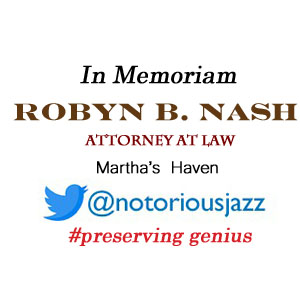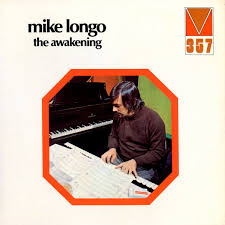
Daily Dose Of Jazz…
Michael Josef Longo was born in Cincinnati, Ohio on March 19, 1937 to parents who had a musical background. His father played bass, his mother played organ at church, and his music training began at a young age. Around four years old he heard Count Basie and Sugar Chile Mike, and the latter led him to begin researching boogie woogie bass lines. His parents took him for formal lessons at the Cincinnati Conservatory of Music at four. He moved to Fort Lauderdale, Florida soon after and by the age of 12, he won a local talent contest.
He received a scholarship from the Ft. Lauderdale Symphony Orchestra in 1955, a Downbeat Hall of Fame Scholarship in 1959 His career began in his father’s band, then Cannonball Adderley helped him get gigs of his own. Their working relationship pre-dated Adderley’s emergence as a band leader, having approached the white teenager to be the pianist at his black church in a town that was largely segregated. This led to recordings with Cannonball in the mid-1950s but he was too young to go to clubs with him. Longo played at Porky’s which was later portrayed in the movie of the same name. He would go on to receive his Bachelor of Music degree from Western Kentucky University.
He was a fan of Oscar Peterson from a young age and he studied with the pianist from 1961 to 1962. He received a National Endowment for the Arts Grant in 1972. During the 1960s he began to lead the Mike Longo Trio, which would remain active for the next 42 years. He would go on to play with Roy Eldridge, Paul Chambers and Dizzy Gillespie, who first heard him playing with Red Allen at the Metropole. He would become musical director for the Dizzy Gillespie Quintet and later the pianist for the Dizzy Gillespie All-Star Band. From 1966 until 1993 his music career would be linked to Gillespie who he was with on the night he died and later delivered a eulogy at his funeral.
Longo also taught a master class to upcoming jazz musicians, and his big band, the New York State of the Art Jazz Ensemble, would play and provide upcoming musicians a chance to learn on stage. A big part of his mission was to re-establish the apprenticeship relationship in teaching jazz.
He recorded two dozen albums as a leader, four with Dizzy and one with LeeKonitz. In 2002 he was inducted into Western Kentucky University’s Wall of Fame in 2002.
Pianist, composer, educator and author Mike Longo died in Manhattan from complications of Covid~19, three days after his 83 birthday on March 22, 2020.
More Posts: author,composer,educator,history,instrumental,jazz,music,piano
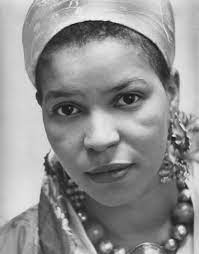
Jazz Poems
MOOD INDIGO it hasn’t always been this way ellington was not a street robeson no mere memory du bois walked up my father’s stairs hummed some time over me sleeping in the company of men who changed the world it wasn’t always like this why ray barretto used to be a side-man & dizzy’s hair was not always grey i remember i was there i listened in the company of men politics as necessary as collards music even in our dreams our house was filled with all kinds of folks our windows were not cement or steel our doors opened like our daddy’s arms held us safe & loved children growing in the company of men old southern men & young slick ones sonny til was not a boy the clovers no rag-tag orphans our crooners/ we belonged to a whole world nkrumah was no foreigner virgil aikens was not the only fighter it hasn’t always been this way ellington was not a street NTOZAKE SHANGEfrom Jazz Poems ~ Selected and Edited by Kevin Young
More Posts: author,playwright,poet
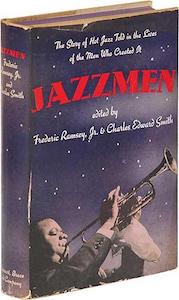
Daily Dose Of Jazz…
Charles Edward Smith was born on June 8, 1904 in Thomaston, Connecticut He began to collect early hot jazz records in the 1920s and worked with William Russell, Eugene Williams, John Hammond, Hugues Panassié and Charles Delaunay in the Hot Record Society. It was from this society that the jazz label HRS Records sprang in 1937 and with Steve Smith he was editor of the jazz magazine Hot Record Society Rag.
With essays in journals such as the Symposium, Daily Worker and Esquire, Charles was among the early jazz critics in the 1930s. Collaborating with Frederic Ramsey he published the book Jazzmen, and, with Wilder Hobson’s American Jazz Music, was one of America’s first jazz books. The latter book included articles on groups like the Austin High School Gang and interviews from early jazz musicians like Willie Cornish, Papa Jack Laine, Leon Roppolo and Nick LaRocca.
Smith and Ramsey argued that then-popular swing was rooted stylistically in blues and traditional jazz. In the course of the research on the book, the interviewed musicians mentioned the name Bunk Johnson again and again. This led to the then-forgotten trumpeter of New Orleans Jazz being rediscovered by Bill Russell in 1942.
With the 1942 Jazz Record Book, an attempt was made to generate a canon of important jazz records, which was later taken up by many other writers, including Marshall Stearns’s The Story of Jazz, Joachim-Ernst Berendt/Günther Huesmann’s jazz book , Barry Kernfeld’s Encyclopedia of Jazz, and Allen Lowe’s That Devilin’ Tune.
Smith also wrote for The New Republic, the magazine Jazz Information, and wrote a series of liner notes for Folkways Records that included Negro folk music, folk blues, early and modern jazz albums. He also wrote the accompaniment text for the LP edition of John Hammond’s Concert Series, From Spirituals to Swing – Carnegie Hall Concerts, 1938/39 on Vanguard Records.
In the opinion of the International Society of Jazz Research, Smith was one of the most important early serious jazz critics, alongside Hugues Panassié, Winthrop Sargeant, Wilder Hobson, Don Knowlton, and Aaron Copland. Jazz author, editor and critic Charles Edward Smith transitioned on December 16, 1970 in New York City.
More Posts: author,critic,editor,history,instrumental,jazz,music
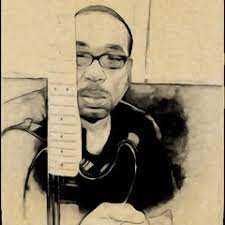
Daily Dose Of Jazz…
Kenn Smith was born Kenneth Lamont Smith on April 27, 1962 in Chicago, Illinois.
As a child of the 60s and Seventies living on the WestSide of his hometownhe first heard the sounds of Motown, Soul, Funk, Country, Jazz and Rock. His school was shows like Hee Haw and Midnight Special, his parents’ record collection, and a neighborhood filled with amateur and professional musicians.
When the family moved to the SouthSide in 1975, Smith began his guitar studies at age 13 with a visit to the local music store purchasing two Mel Bay books. Three years later the family moved to the western suburbs of Maywood, Illinois. At 16 he began classical guitar studies with guitarist Bruce Walters, and later continued studies at Jack Cecchini Studio.
While attending Proviso East High School, he played electric and classical guitar as well as timpani in the Proviso Township Orchestra, electric guitar and bass in the Proviso East High School jazz band, where he received the Louis Armstrong Award for Outstanding Jazz Improvisation during his senior year.
1982 saw Kenn beginning his career teaching guitar at Robinson’s Music Academy in Maywood, as well as performing with local funk and fusion bands. This he did while attending Columbia College of Chicago, studying music management and production. In 1987 he enrolled at the American Conservatory of Music where he studied jazz guitar and composition. In between those years of teaching, performing and study, he became an avid fan of progressive rock and fusion, developing skills as a guitarist, bassist and composer.
In 1986, he began his career as a freelance guitarist and bassist, performing on Chicago’s jazz, blues and rock scene. But it wasn’t till 1989 his professional career took off, working as a guitarist at the Chicago Cotton Club. It was here he later formed his first jazz trio and opened for jazz greats Shirley Horn, Stanley Turrentine, Freddy Cole, and Art Porter. As a jazz side man he played with other jazz greats, Jodie Christian, Guy Fricano, Johnny Frigo, Bobby Broom, Najee and many others.
He would go on tour with the Chi-Lites, start his own label Kenn Smith Music, has written, produced and recorded eight albums, as well as authored an instruction book for electric bass and numerous articles for online magazines such as Mel Bay Bass Sessions, and Bass Musician Magazine.
Guitarist, bassist, composer, educator and journalist Kenn Smith, who is well versed in many styles of music, continues to explore his music.
More Posts: author,bass,composer,educator,guitar,history,instrumental,jazz,music
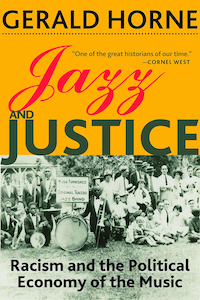
GERALD HORNE: HISTORIAN, AUTHOR, EDUCATOR
Jazz and Justice: Racism and the Political Economy of the Music
Gerald Horne assembles a galvanic story depicting what may have been the era’s most virulent economic—and racist—exploitation, as jazz musicians battled organized crime, the Ku Klux Klan, and other variously malignant forces dominating the nightclub scene where jazz became known.
More Posts: adventure,album,author,club,educator,festival,genius,historian,jazz,museum,music,preserving,restaurant,travel





